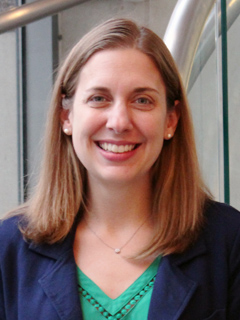HOW CAN WE HELP YOU? Call 1-800-TRY-CHOP
In This Section

Dr. Ahrens-Nicklas works to understand why patients with inherited biochemical disorders often suffer severe, untreatable neurologic and cardiac symptoms. She strives to elucidate the link between biochemistry and network excitability, in order to drive new approaches to therapy.
Bio
For most inborn errors of metabolism (IEM), it is not known how the biochemical defect leads to neurologic symptoms. Yet, patients often have significant, untreatable central nervous system (CNS) disease. Dr. Ahrens-Nicklas and her lab team aim to establish a mechanistic understanding of these disorders, in order to develop novel therapies that prevent or reverse their neurologic manifestations.
Dr. Ahrens-Nicklas and colleagues discovered that neuronal networks underlying learning and memory are disrupted very early in CLN3 disease, a progressive neurologic lysosomal storage disorder and the most common cause of pediatric dementia. Functional circuit defects arise before any lysosomal storage or cell death is detectable in the brain. The team is working on developing therapies aimed at stopping or reversing these pathologic circuit changes.
Dr. Ahrens-Nicklas’ research also focuses on gene discovery, clinical characterization, and targeted-therapy development for rare and novel inherited disorders of the heart and brain.
Education and Training
BS, Duke University (Pharmacology), 2003
PhD, Weill Cornell Medical College (Physiology and Biophysics), 2010
MD, Weill Cornell/Rockefeller University/Sloan-Kettering MD/PhD Program, 2011
Pediatrics Medical Genetics Residency and Medical Biochemical Genetics Fellowship, Children’s Hospital of Philadelphia, 2017
Titles and Academic Titles
Assistant Professor of Pediatrics
Attending Physician
Professional Memberships
American Academy of Neurology, 2017-
American College of Medical Genetics and Genomics, 2014-
Society for the Study of Inborn Errors of Metabolism, 2014-
Society of Inborn Metabolic Disorders, 2014-